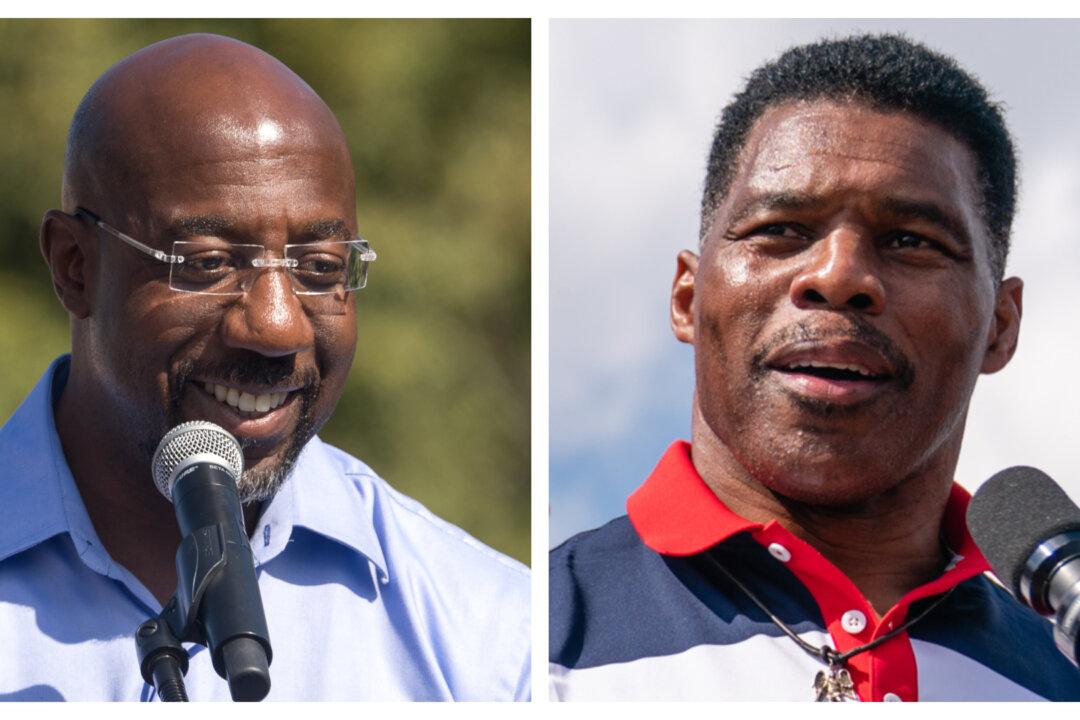Raphael Warnock and Herschel Walker went toe to toe in Savannah, Georgia, on Friday in one of the political season’s most anticipated debates as the latter seeks to take away the former’s Senate seat.
Walker, the Republican nominee and a state football legend making his first run for office, bore in, tying Warnock again and again to the unpopular Biden administration and its record on the economy, crime, and foreign affairs.





